A documentary reveals the life and expansive body of work of veteran artiste Pandhari Juker that spanned generations of directors and actors of Hindi cinema
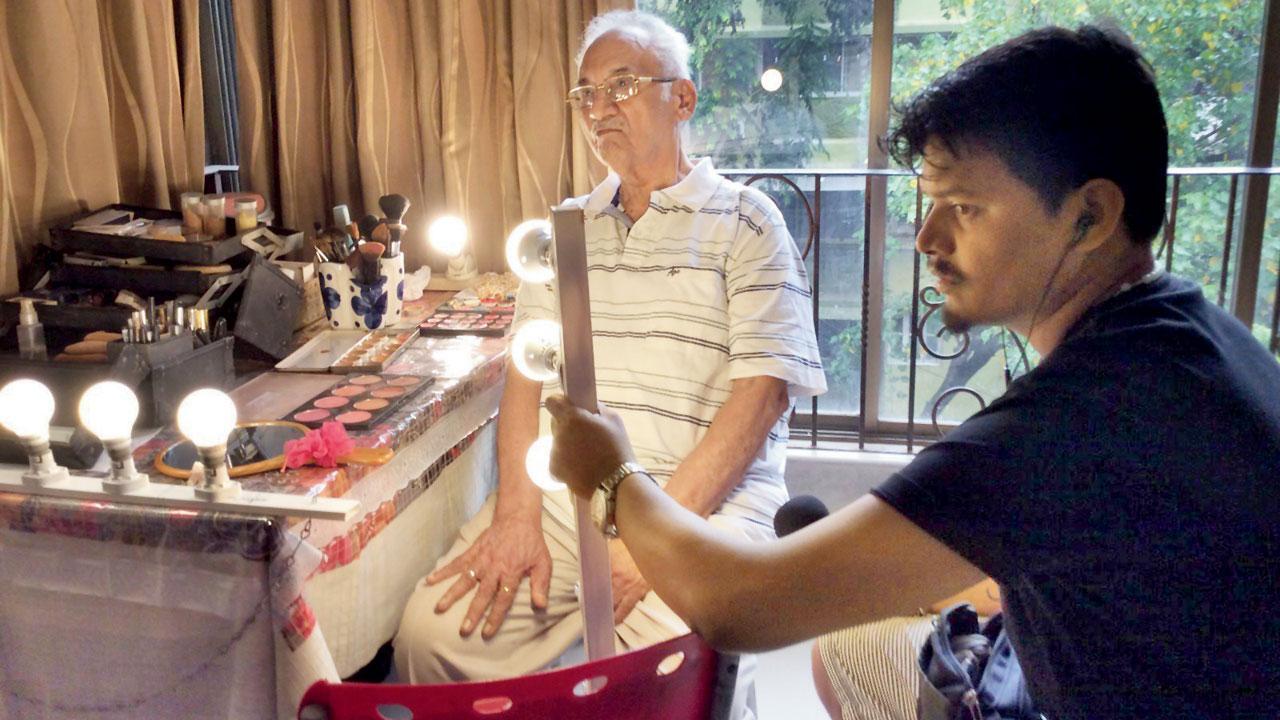
The film will explore the late (left) Pandhari Juker’s life as Hindi cinema’s beloved make-up dada
In a middle-class home, 75-year-old Pandhari Juker, fondly known as Pandhari Dada, shares tips and hacks on how to perfect the art of make-up, with an attentive crowd. This opening scene of the 35-minute documentary titled, Pandhari ke Rang (Pandhari’s colours) is a telling of the veteran artist’s skill and patience. Directed by Sachin Shirke and Pankaj Sharma, the film shines light on the artistic journey of a man who was responsible for the way many leading stars looked from the 1950s to the late ’90s.
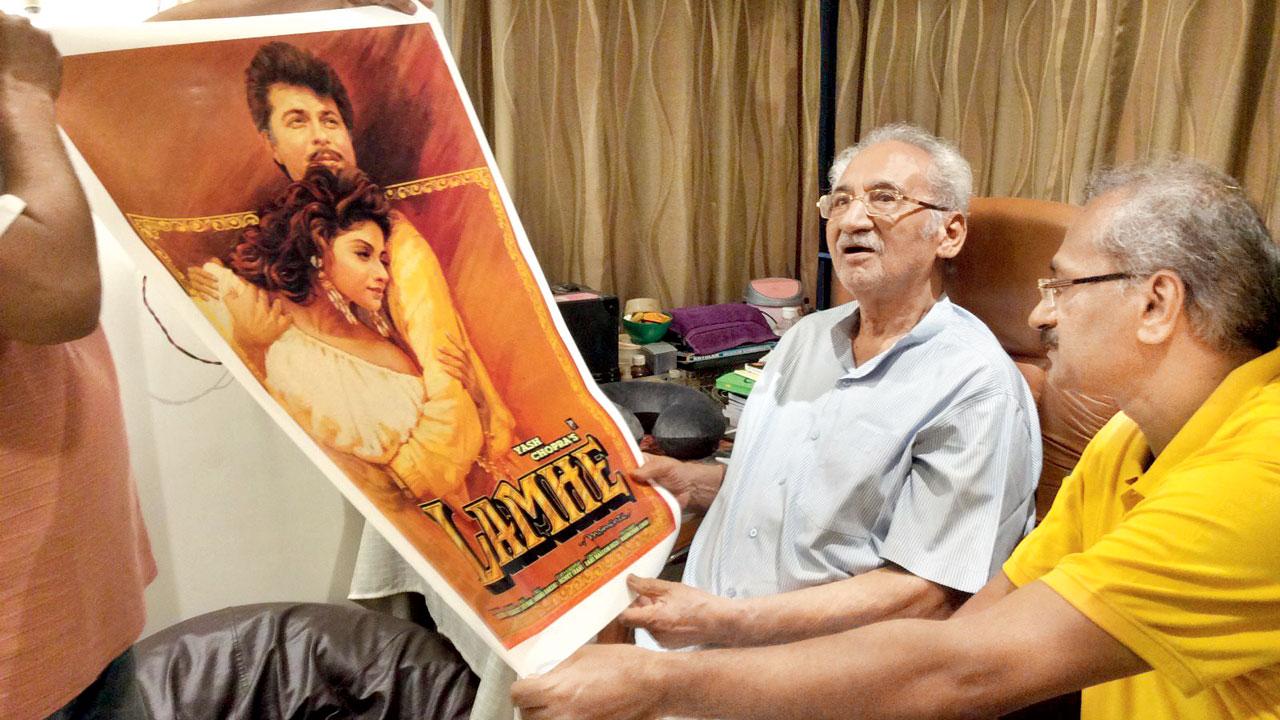
Juker examines a poster of Yash Chopra’s Lamhe
“When we had an opportunity to make a documentary for the Films Division, we initially thought of making a film about Bollywood technicians who work behind the scenes and often don’t get the recognition they deserve. We thought of looking at the work of costume designer Bhanu Athaiya, but then we realised, there’s a lot of information available including a book about her. That’s when we thought of make-up,” recalls Shirke.
“When we researched for information about Pandhari Dada, it was surprising that despite doing over 700 films, there was hardly any information about him, not even a Wikipedia page. He started his career in the 1950s with V Shantaram. He was the first make-up artiste to receive a diploma from the University of Russia. This was done on the recommendation of Nargis Dutt and KA Abbas,” he adds.
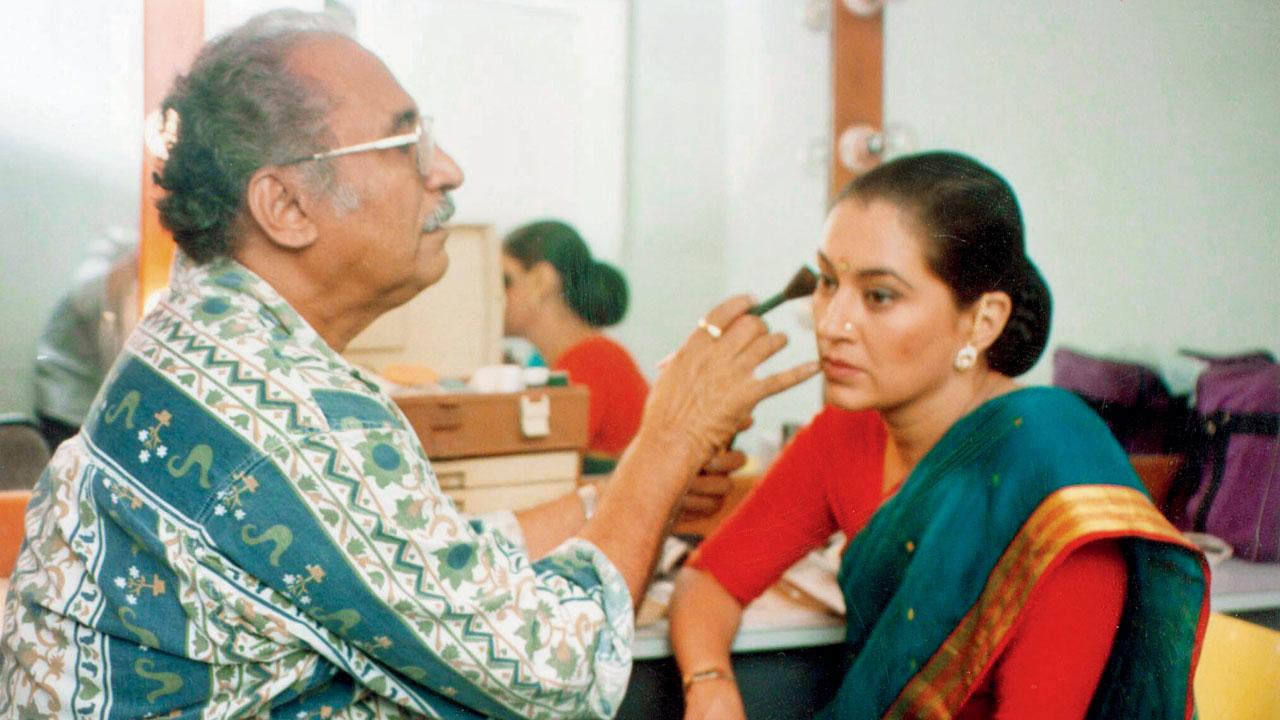
The make-up artiste with the late Priya Tendulkar. File pic
Several actors, including Waheeda Rehman, Madhuri Dixit, Saroj Khan, Juhi Chawla, Manisha Koirala, Subhash Ghai, Renuka Shahane, Sudha Chandran and Gulshan Grover, among others, speak fondly about Pandhari Dada in the film. “We had no trouble slotting the interviews. Everyone we approached was happy to speak about him because of the goodwill he has had. The popular belief in the industry was that if you have your make-up done by Pandhari Dada then you are bound to be successful,” says Sharma.
The documentary has interviews in Hindi and Marathi with certain sections in English as well. While celebrities shared warm, personalised anecdotes about his hard work and warmth, Juhi Chawla pointed out that he always applied make-up using his hands. Actor Ashwini Bhave joked that she always told him that he must get his fingers insured.
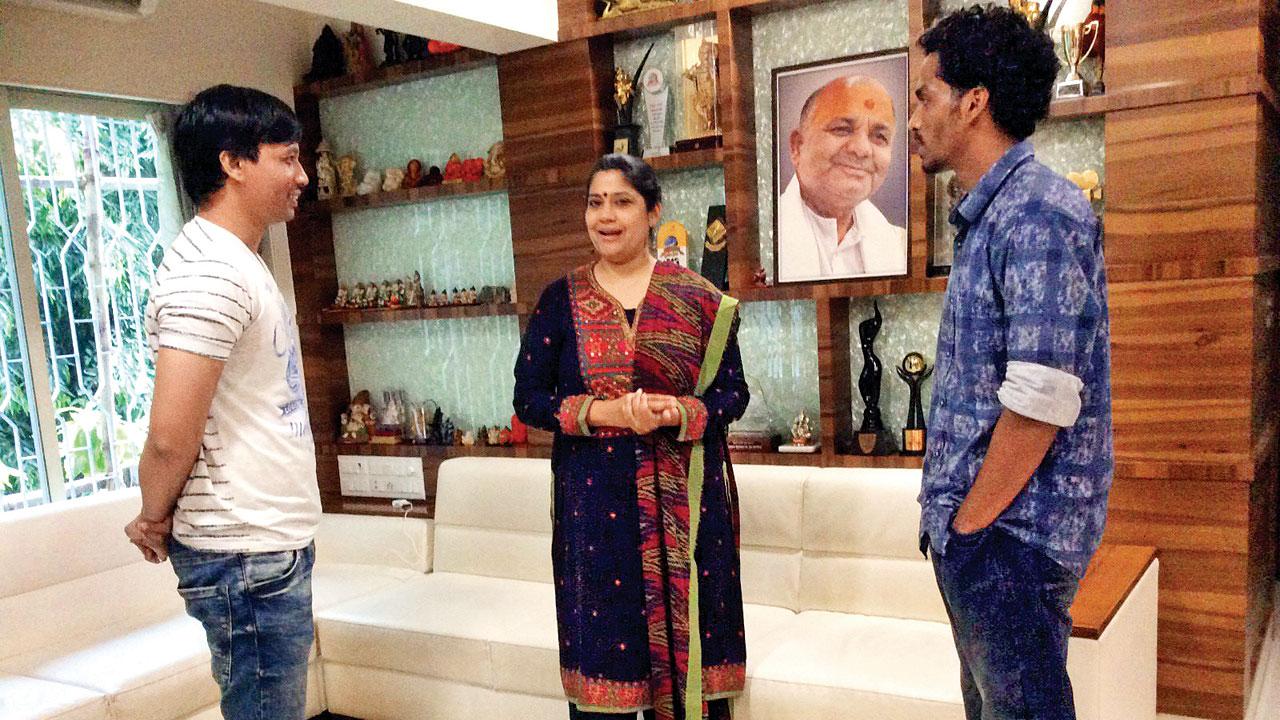
(Left) Film director Sachin Shirke and (right) DOP Nikhil Kamble chat with actress Renuka Shahane
“Back in the day, there was no 3D make-up and technology but he still made actors look beautiful — from Meena Kumari to Dimple Kapadia, Rekha, Jaya Bachchan, Madhuri Dixit, Sridevi and Kajol. Pandhari Dada was a constant for many leading film banners. For example, Yash Chopra would work only with him. He was part of the team for all his films,” Shirke reveals. Pandhari Dada also worked extensively with Ekta Kapoor’s Balaji Telefilms. “On one show, Sudha Chandran played the role of a vamp called Ramola Sikand. Pandhari Dada had designed a bindi for her which everyone including the actress felt was too loud and were sceptical about it. Pandhari Dada promised that in a few months the style would become a trend, and everyone would follow it, and he was right,” says Shirke.
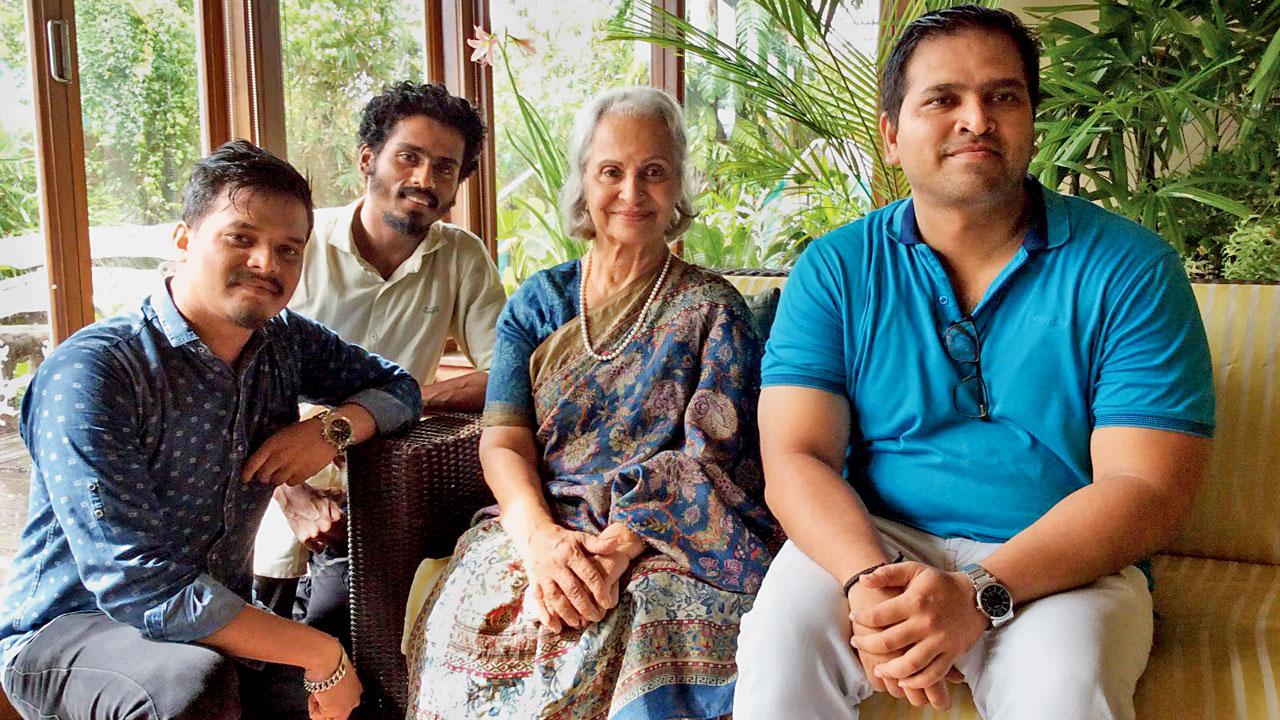
The filmmakers with (centre) Waheeda Rehman
Sharma recollects how the artiste always wanted to know what was happening on the shoot; if the edits had gone well or if artistes willingly gave interviews for their film. “He wasn’t too well and his family members requested us to not keep calling him to different locations for the shoot. However, he would get upset if we didn’t involve him. He is one of the nicest people we have worked with. We are sad that despite the contribution of several such legendary artistes in the field of make-up, none of the popular film awards present awards in this field and the artistes do not get the recognition they deserve,” says Sharma.
Sharma and Shirke began shooting the film in 2019, in 2020 it had to be stalled due to COVID-19, and was finally completed it in 2021. Pandhari Dada passed away in 2021 but had a chance to see the rough cut. The screening is a part of NCPA’s Reality Check curated by Cinema Collective, where two other documentaries will be screened along with this.
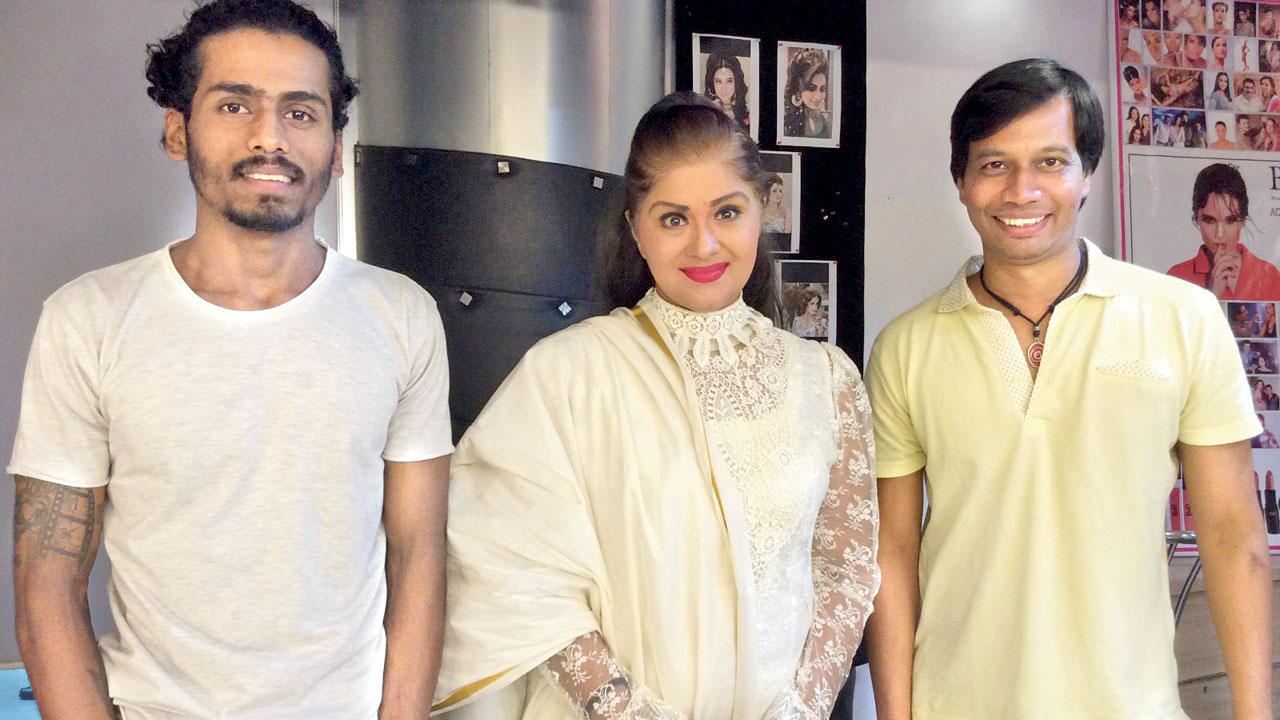
The team meets (centre) actress Sudha Chandran
The film, Aravali – The Lost Mountains is about marble quarrying in Rajasthan’s Rajsamand district and the serious water crisis and air pollution that mining causes in this region. The film explores the right balance between economy and the environment. The other film Raga of River Narmada (Waterscapes) India, looks at the many moods, colours and shapes of the Narmada juxtaposed with a traditional Dhrupad recitation. The film screenings will be followed by a post film discussion.
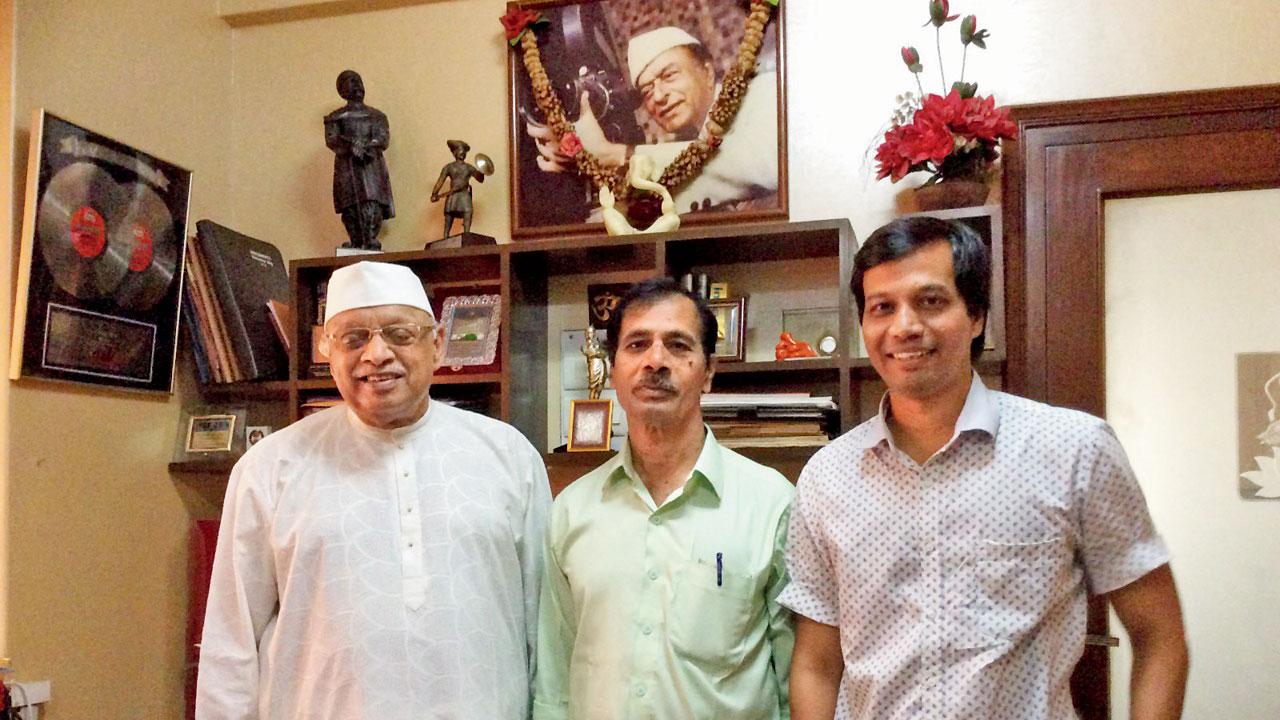
The crew also interviewed (left) Kiran Shantaram, son of renowned filmmaker late V Shataram
“Typically, we screen films that are 60 minutes to 120 minutes; however, we had these three gems with us that are roughly 30 minutes each. So, it was a calculated decision to put these together, irrespective of them not being thematic but giving the audience a smorgasbord of themes,” says Veena Bakshi, Cinema Collective.
On: March 20; 6.30 pm onwards
At: Godrej Dance Theatre, NCPA, NCPA Marg, Nariman Point.
Log on to: in.bookmyshow.com
Entry: First come first served basis (till 6.20 pm)
 Subscribe today by clicking the link and stay updated with the latest news!" Click here!
Subscribe today by clicking the link and stay updated with the latest news!" Click here!










